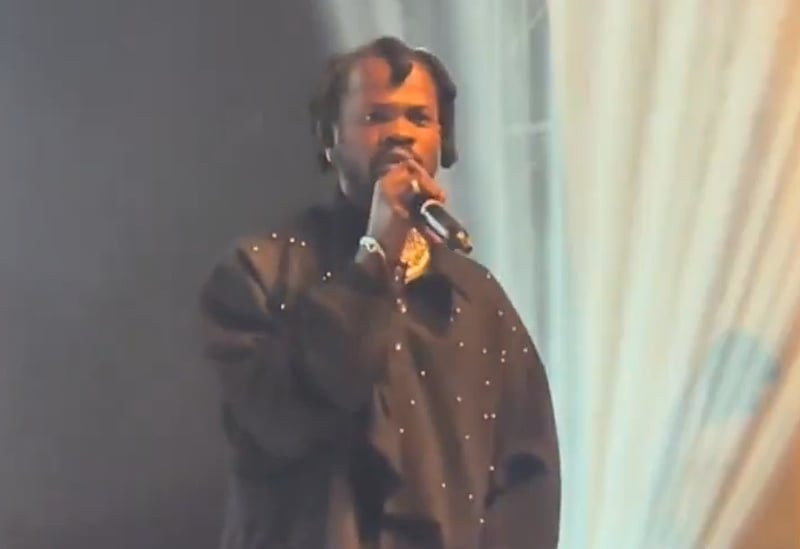The recent London performance by Ghanaian artist Fameye at the Dominion Centre has sparked a public disagreement between the artist’s management and the event organizers, Chos Media, regarding the reasons behind the perceived subpar quality of the show. Fameye’s management, Fameye WW Enterprise, issued a press release accusing the organizers of unprofessional conduct, specifically citing their insistence on using their designated DJ, DJ Chos, instead of accommodating Fameye’s request to use his own preferred DJ. They argued that their attempts to bring Fameye’s official DJ from either Ghana or Belgium were rebuffed by the organizers, who were adamant about using DJ Chos, a decision they believe contributed significantly to the disappointing performance. They further criticized DJ Chos’ performance, deeming it below professional standards and detrimental to what should have been a memorable experience for the fans.
Chos Media, in their own press release, countered these accusations, shifting the blame onto Fameye’s alleged lack of preparation and the conflicting instructions they received from the artist and his team. They detailed the limited rehearsal time Fameye dedicated to the performance, stating he only participated in two brief sessions with DJ Chos. The first rehearsal, according to the organizers, was a mere 12-minute session in DJ Chos’ car, after Fameye declined a studio rehearsal citing fatigue. The second rehearsal, held at the venue itself, lasted only 15 minutes. Chos Media argued that this insufficient preparation time significantly hampered DJ Chos’ ability to effectively coordinate with the artist and deliver a seamless performance. Furthermore, they highlighted the conflicting instructions received from both Fameye and a member of his team during the event itself, which necessitated last-minute changes to the agreed-upon playlist, ultimately impacting the show’s coherence and flow.
The core of the disagreement lies in the attribution of responsibility for the perceived shortcomings of the performance. Fameye’s management places the blame squarely on the organizers for their insistence on using DJ Chos, alleging that this decision, coupled with the DJ’s purportedly subpar performance, directly led to the disappointing outcome. They contend that had the organizers allowed Fameye to use his preferred DJ, the performance would have lived up to expectations. Conversely, Chos Media deflects these accusations, arguing that the primary issue was Fameye’s inadequate preparation and the conflicting instructions they received during the event, which disrupted the flow and coordination of the performance.
Chos Media further bolstered their defense by highlighting DJ Chos’ successful track record, citing his flawless performances with other artists, including Kelvyn Boy and Kweku Flick, who also performed on the same night. They emphasized that these artists, unlike Fameye, attended proper rehearsals and provided clear instructions, which facilitated seamless and successful performances. This comparison serves to underscore Chos Media’s argument that the responsibility for the issues with Fameye’s performance rests with the artist and his team, rather than with DJ Chos or the organizers themselves.
The contrasting narratives presented by Fameye’s management and Chos Media offer two distinct perspectives on the factors that contributed to the perceived shortcomings of the London performance. Fameye’s camp points to the imposed DJ as the primary issue, while Chos Media emphasizes the artist’s lack of preparation and conflicting instructions as the root cause. This public disagreement highlights the complexities of coordinating live performances and the potential for miscommunication and logistical challenges to impact the final product.
In the absence of further evidence or independent accounts of the events, it remains difficult to definitively determine the primary cause of the issues surrounding Fameye’s London performance. Both sides present seemingly valid arguments, and the truth likely lies somewhere in the middle. What is clear, however, is that a breakdown in communication and coordination occurred, ultimately impacting the quality of the performance and leaving fans disappointed. This incident underscores the importance of clear communication, thorough preparation, and professional collaboration between artists and event organizers to ensure successful and memorable live performances.


